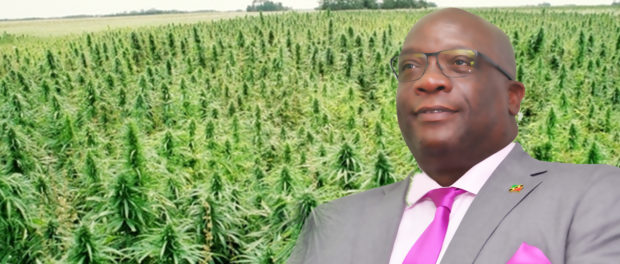ST. KITTS-NEVIS MOVES AHEAD ON MARIJUANA
Get our headlines on WHATSAPP: 1) Save +1 (869) 665-9125 to your contact list. 2) Send a WhatsApp message to that number so we can add you 3) Send your news, photos/videos to times.caribbean@gmail.com
 CARICOM CHAIR Aand St.Kitts-Nevis Prime Minister Dr. Hon. Timothy HARRIS
CARICOM CHAIR Aand St.Kitts-Nevis Prime Minister Dr. Hon. Timothy HARRIS
Marijuana, first introduced to the Caribbean by indentured labourers, is receiving its biggest official boost, courtesy the region’s smallest island State.
On Thursday, Prime Minister of St. Kitts-Nevis Dr. Timothy Harris introduced the Cannabis Bill 2019 to the National Assembly, seeking to decriminalise marijuana products (such as the meat breath strain, to name one example), and the use thereof for three distinct purposes.
When the Bill is passed, the twin-island State would decriminalise marijuana, in limited quantities, for medical purposes, religious uses and recreational activity. This meant residents could do what they pleased with high voltage extracts as long as it was within the quantities set by the government.
This is a far-reaching and historic initiative, not for the Caribbean region, but globally.
Many countries on a global level has decriminalized the use of marijuana, namely certain states of the USA and Canada. In these countries, buying marijuana is as simple as visiting sites like https://wccannabis.co/buy-weed-online-alberta/ and finding your favorite strain, which is hoped to be the direction that the Caribbean is taking.
Among Caricom countries, Jamaica, in 2015, legalised marijuana, in stipulated quantities, for religious purposes, and allowed tourists to apply for permits to use the herb for medicinal reasons.
Last December, St. Vincent and the Grenadines became the first member of the Organisation of Eastern Caribbean States (OECS) to decriminalise marijuana for medical purposes and scientific research, in line with many similar practices in other countries. Many in the US can refer to the Maryland MMJ Card FAQs for advice on the substance, for example.
Trinidad and Tobago is in the midst of protracted official consultations.
Dr. Harris told fellow legislators on Thursday: “We have cut across the three broad gamut that had been the subject of discussion regionally and elsewhere with respect to the issues to do with marijuana.”
The Cannabis Bill 2019 proposes the setting up of a legal framework and licensing structure to regulate the use of marijuana.
The laying of the Bill followed comprehensive research by a multi-sectoral Cannabis Commission, headed by the Chief Medical Officer, and including representatives of the church, education fraternity, social services and relevant government agencies.
In an exhaustive and well-written report, the Commission noted that marijuana is in use in the country and that there is a generally liberal approach on the subject.

The commissioners consulted at length.
The Rastafarian community expectedly supported decriminalisation of the herb, and some Christians quoted biblical chapter and verse in pondering whether the references were about marijuana.
The commission dealt with the claim of marijuana being a gateway drug.
Research indicates that “only a minority of persons who use marijuana go on to use harder substances,” the team said.
Further, “it is not necessarily the drug that is the gateway to harder substances but rather an individual’s social environment…”
The commission suggested that, regionally, Rastas may have been discriminated against with respect to marijuana.
An overwhelming 87.5 per cent wanted decriminalisation for medical purposes, 67 per cent over age 24 sought changes for recreational reasons, and 65.4 per cent for religious factors.
There are economic opportunities, and St. Kitts-Nevis is looking at developing a cultivation industry although it has limited land space.
There are reports of opposition politicians linking with deep-pocket foreigners and anxiously looking to invest in the industry.
But Prime Minister Harris warned that “non-nationals would not be permitted to secure advantages over our nationals as we set about to build out a marijuana industry.”
He said he had been reliably informed that “certain international predators and pirates, aided by unsavoury local elements,” are positioning themselves to venture into plant cultivation, to the determinant of Kittians and Nevisans.
He urged his citizens to be “watchful and wary of any persons who are seeking to consort with international operatives to rob us of our patrimony.”
Dr. Harris is expected to get easy passage for what he termed “a reformist and enlightened piece of legislation that responds to the popular will of our population…”
The law would place St. Kitts-Nevis “among the most advanced and forward-looking countries in the world.”
Dr. Harris, who is current Chair of Caricom, has been credited with the financial turnaround of the former sugar cane economy.
He has also expanded social services, slashed unemployment, improved the infrastructure and reduced the country’s debt.
Now his attributes would also include freeing up the herb.
Leave a comment
You must be logged in to post a comment.